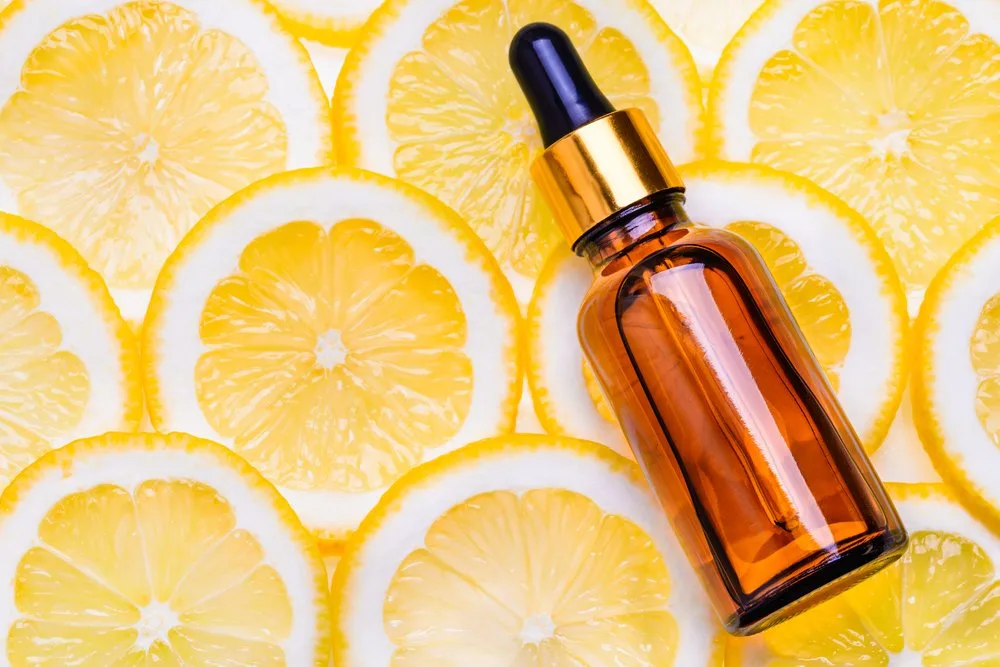There are a few ingredients that are always thrown around when it comes to skincare, and vitamin C is definitely one of them. As of late, the only time we’ve been hearing of vitamin C is in regards to our immune system. However, this ingredient is just as necessary for our skin as it is for our overall health.
The antioxidant helps to address a number of skin concerns and this is why it continues to be a dermatologist’s best skincare ingredient, and why it’s constantly found in every lotion, face cream, and serum known to man.
What is vitamin C?
Vitamin C is an essential nutrient used by the body for the growth and repair of tissues. Unfortunately, the body cannot produce it on its own so the best way to get it is through supplements or your diet.
Now while you can eat your way to a healthy vitamin C intake, you can’t do the same for your skin. This is because, when it comes to your skin, the topical application of vitamin C works out better than oral intake. In fact, a study published in Dermatologic Therapy found that the topical application of vitamin C resulted in 27 times higher levels of vitamin C in the skin than even the highest possible oral intake.

6 Vitamin C Beauty Benefits
1. Blocks Free Radicals
Free radicals are unstable molecules that damage cells, and in doing so, they encourage premature aging, and they may even trigger skin cancer. Being an antioxidant, vitamin C works to protect the skin by working to neutralize free radicals, thus preventing premature aging and leaving the skin with a younger and fresher appearance.
2. Hydrates the skin
Loss of moisture can not only lead to dull and dry skin, but it can also accentuate the appearance of wrinkles and fine lines.
Vitamin C helps the skin retain moisture by supporting the skin barrier. Additionally, magnesium ascorbyl phosphate is a vitamin C derivative used in skincare, and it has been shown to help hydrate the skin (1).
3. Healthy hair
Vitamin C doesn’t only have benefits for your skin.
Firstly, it helps to protect your locks from free radical damage (which can cause breakage and hair loss). Secondly, it helps to stimulate the production of collagen. This is an important protein that helps to keep your hair healthy. Lastly, vitamin C helps the body absorb iron, which is a necessary mineral for healthy hair growth.
4. Boosts Collagen Production
As we age, the levels of collagen begin to decline and this greatly contributes to the formation of fine lines and wrinkles, as well as a loss of volume. Thankfully, vitamin C helps to stimulate the production of collagen, and in doing so, it helps to reduce the appearance of fine lines and wrinkles.

IvonneW/iStock/Getty Images
In fact, a study published in the Clinical, Cosmetic and Investigational Dermatology Journal found that vitamin C helped to increase collagen production among study participants in all age groups.
What’s more, its antioxidant properties help to neutralize the free radicals that speed up the breakdown of collagen.
5. Addresses Sun Damage
Prolonged sun exposure and poor sun protection won’t only accelerate the aging process, but it can also cause skin concerns like flakiness, redness, and sunspots.
One animal study found that vitamin C helped to reverse sun damage. If you’re interested in human trials, a 1999 study found that a 3-month vitamin C treatment helped participants with mild to moderately photo-damaged skin. In fact, they experienced a significant improvement in skin tone and roughness. As of this writing, there are not any recent human trials looking at vitamin C and sun damage.
6. Help with Hyperpigmentation
Hyperpigmentation happens when the body produces too much melanin in certain areas of the skin. This leaves you with unwanted brown spots and discoloration. That said, if you have concerns about uneven skin tone, vitamin C has been found to address the overproduction of melanin.
According to a study published in the Journal of Drugs and Dermatology, participants noticed a 73% improvement in skin pigmentation after using vitamin C.
How to buy an effective vitamin C product
When it comes to buying an effective vitamin C beauty product, there are a few things that you need to remember.
1. Choose L-ascorbic acid
Vitamin C comes in various forms, yet L-ascorbic acid has been found to be the most stable and effective form. That said, when shopping for products, make sure to check for L-ascorbic acid as an ingredient.
For instance, the Skinceuticals CE Ferulic serum contains 15% L-ascorbic acid, and it’s been found to improve the appearance of wrinkles and appearance.
2. Watch your concentration
The concentration of vitamin C also plays a role with research showing that a concentration higher than 8 but lower than 20 is quite effective (2). Take the Exuviance AF Vitamin C20 Serum Capsules which contain 20% L-ascorbic acid and have been found to effectively address skin concerns such as sun damage and dullness.
3. It should come in a dark container
Vitamin C breaks down when it’s exposed to light or air. It’s important that any product you purchase comes in a dark glass bottle.
The L’Oréal Revitalift Derm Intensive Vitamin C Serum comes in the form of a metal tube, which helps to keep the product stable, ensuring that it delivers great benefits to your skin.
Store your product in a cool, dark place and away from extreme heat. Additionally, if you notice that the product has become yellow or brown, this means that it’s been oxidized and is likely going to be less effective.
4. It contains complementary ingredients
Vitamin C is more effective if it’s paired with complementary ingredients, particularly vitamin E and ferulic acid. Ferulic acid has been found to stabilize the powerhouse ingredient whereas vitamin E helps to boost antioxidant protection.
 Paula’s Choice Resist C15 Super Booster not only contains vitamins C and E, as well as ferulic acid, but it also contains peptides, which helps to boost your skin health.
Paula’s Choice Resist C15 Super Booster not only contains vitamins C and E, as well as ferulic acid, but it also contains peptides, which helps to boost your skin health.
Who should avoid it?
If you have sensitive skin, it’s best to start with a lower concentration. Reach out to your dermatologist to find a product that is best suited for your skin type.
That said, it’s also advisable to not use vitamin C and retinol at the same time. This can cause irritation. Rather, use vitamin C products in the morning and retinoids at night.
Want to know more?
As lockdown regulations lift, more and more of us are making our way outside. So, for those still battling skin concerns, these post-lockdown buys will not only prep your skin for the outside, but they’ll also help to address skin issues brought on by being stuck indoors all day.
References
Al-Niaimi, F., & Chiang, N. (2017). The Journal of clinical and aesthetic dermatology, 10(7), 14–17.
Burke, K. E. (2007). Interaction of vitamins C and E as better cosmeceuticals. Dermatologic therapy, 20(5), 314-321.
Crisan, D., Roman, I., Crisan, M., Scharffetter-Kochanek, K., & Badea, R. (2015). Clinical, cosmetic and investigational dermatology, 8, 463–470. https://doi.org/10.2147/CCID.S84903
Pullar, J. M., Carr, A. C., & Vissers, M. (2017). Nutrients, 9(8), 866. https://doi.org/10.3390/nu9080866
Telang P. S. (2013). Indian dermatology online journal, 4(2), 143–146. https://doi.org/10.4103/2229-5178.110593
Traikovich, S. S. (1999). Use of topical ascorbic acid and its effects on photodamaged skin topography. Archives of otolaryngology–head & neck surgery, 125(10), 1091-1098.
Zussman, J., Ahdout, J., & Kim, J. (2010). Vitamins and photoaging: do scientific data support their use?. Journal of the American Academy of Dermatology, 63(3), 507–525. https://doi.org/10.1016/j.jaad.2009.07.037



![women [longevity live]](https://longevitylive.com/wp-content/uploads/2020/01/photo-of-women-walking-down-the-street-1116984-100x100.jpg)










